When people ask me what Leah is like, my response is, “she’s not Leah, she’s Mrs Chase, and she is formidable.” And that’s not the half of it. There is no judgment in her gaze, nor vitriol from her lips, but there is something about her presence that creates the sudden desire to articulate your words, watch your language, sit up straight or stand up straight, pull down your dress so that your knees are covered, pull up your pants so that they sit on your hips where they should be, take off your baseball cap and while you’re at it spit out the gum you’d been chewing. And that’s before she’s said a word. I was raised by women like her; women who quietly, or loudly, inspired you to be better. Women who bustled about, mothering, cajoling, threatening, crying, laughing, singing, cooking, praying, hoping and teaching. Women who insured that you not only aimed for, but succeeded at being the best version of yourself.
The first time I saw Mrs Chase, she was being honored with the Ella Brennan Lifetime Achievement Award, an honor bestowed on individuals who have made a lifetime commitment to the hospitality industry through extraordinary leadership, personal and professional accomplishments, and philanthropic contributions to their community. I was seated at a table across the room from her and I remember standing on the tip of my toes so that I could watch her give her acceptance speech. I’m not sure what I expected to hear, but I suppose that I thought that she’d speak of her long career, of her many accomplishments, among them cooking for presidents and other luminaries, and about being the chef/owner of one of the most well-known restaurants in New Orleans. She was a famous chef after all!
But she mentioned none of those things. She spoke of inspiration, of the continuing journey to create a human experience with food at its center, of the necessity to help those who struggle, and most of all of the ethic of hard work; of focusing on your craft, whatever that may be, and on yourself. She spoke of family and made us, the audience, feel as if we were all a part of hers. In a three minute speech she managed to endow upon each of us a mission to be better, to reach higher, and to bring others along with us. At ninety years old, silver haired and slightly stooped, standing with the help of one of her daughters, and leaning heavily on a walker, she was the tallest person in the room.
The second time I saw Mrs. Chase, she was seated at a table in the kitchen of her Tremé Restaurant, Dooky Chase’s. I had been living in New Orleans for a few months and was slowly wading my way through the intricacies of starting over in a new city and in a new career. One night at dinner with some friends, a couple of whom are New Orleans native, the subject of gumbo came up, and naturally so did the name Leah Chase and her famous gumbo z’herbes. Pieces of her speech from the award show the previous year still rang in my ears, and as the conversation progressed I spontaneously decided I wanted to meet her, and imbued with the attitude of one who has nothing to lose, I simply called the restaurant the next day and requested a meeting. Two weeks later, dressed in my Sunday best on a Tuesday, I was seated in front of an icon.
It was lunchtime at Dooky Chase’s, the kitchen buzzed with activity and we were seated in the center of it. Dressed in a red chef’s coat and with her trademark smile lighting up her face, Mrs Chase, having been told that I’m Haitian, immediately asked me what ingredients Haitians put in their gumbo, quickly followed by a request to make it for her. We launched into a conversation about the various types of gumbos and the cultural differences, and similarities, between Haitian and New Orleans cuisines. Throughout our time together, as cooks and servers maneuvered around us, and her daughter, Stella, peeked in from time to check on her, we spoke of politics, food, art, Eleanor Roosevelt, Joe Lewis, and her love of sports, of New Orleans, my new home and her favorite city in the world. She surprised me with her deep knowledge of Haitian history, and I surprised her with examples of our similar upbringing by very strict parents, though we are generations apart. After two hours together and as I stood up to leave, she bid me to lean down and whispered, “Remember to stay you. Always stay you.”
The story doesn’t end here.
Since that initial conversation, I’ve spent more time with Mrs Chase, and as most of our conversations go, she has as much to say to me as I have questions for her. She offers life lessons and advice, wrapped in a strong sense of humor. We saw each other most recently last month, just a few weeks before her 92nd birthday—January 6th, King’s Day—and a birthday that she shares with another pioneer, Joan of Arc. We met once again in her kitchen and after she gently chastised me for not visiting more often, and for not yet bringing her my version of gumbo, we settled in for a chat.
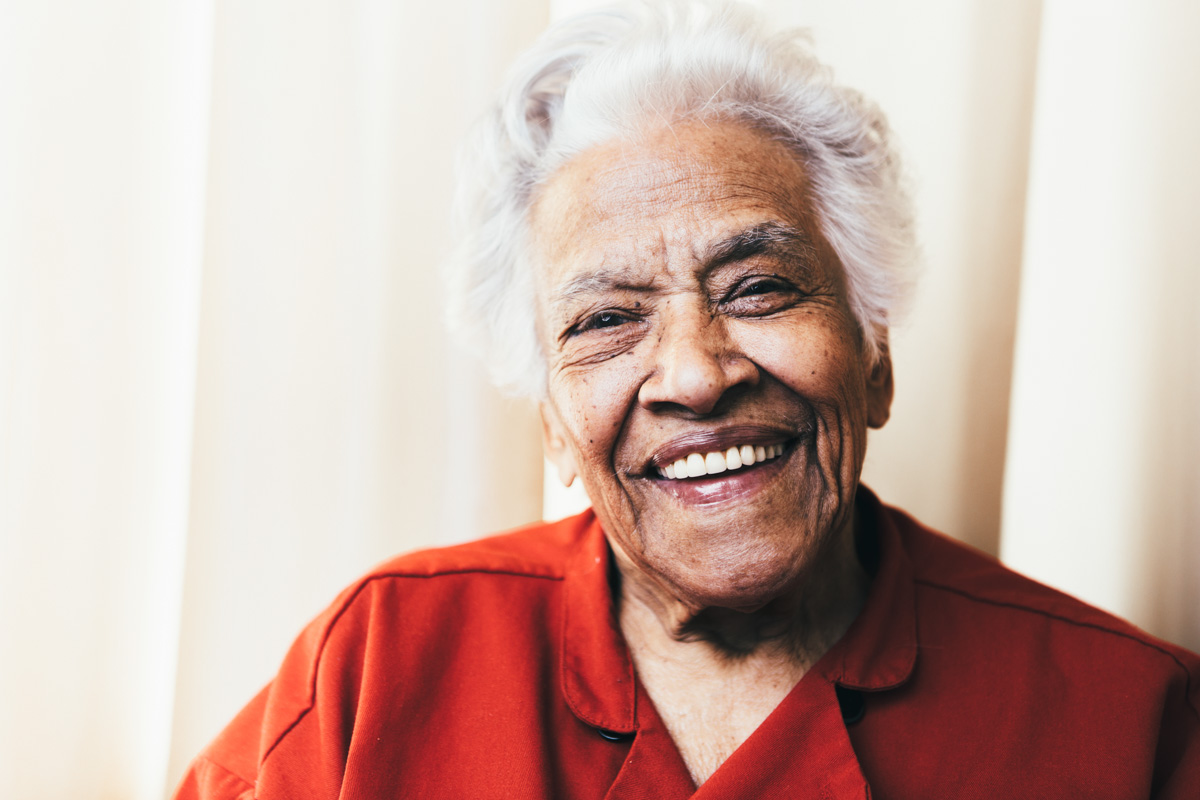
When you left home and moved to New Orleans at age sixteen, did you already know what you wanted to do?
Not really, I knew that I wanted to accomplish something, but I didn’t know what. But as you go you pick up things. You pay attention. When you’re young that’s the time to learn and make changes because if you make a mistake you can turn back. You have the time to turn back and do something else. If you don’t go this road, you can go that road.
But you kept going forward in a straight line though. It seems as if you didn’t zig-zag.
Well, I kind of wriggled a little bit, but I figured it out. (laughs)
What do you think about your talent as a chef and how that discovery came about?
I’m not a chef. I’m a cook. I just cook, that’s all. I always tell young kids, and particularly teenagers, whatever talent you have, you have to make it work for you. Don’t look at the person next to you and try to be like him or be like her. Just be you.
Life is a wheel that goes around and it takes different cogs to make that wheel go around, and everybody has a spot on that wheel. Everybody can fit on that wheel. You just do what you do and know that you have a spot too.
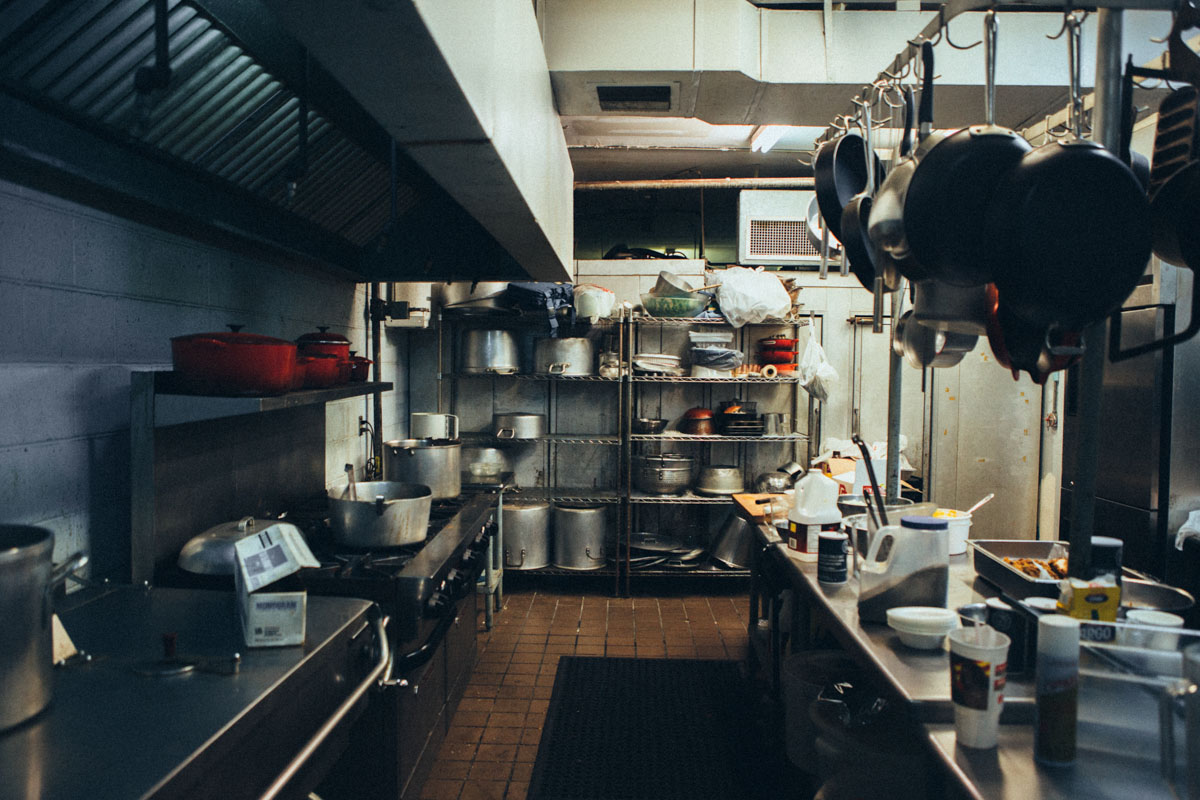
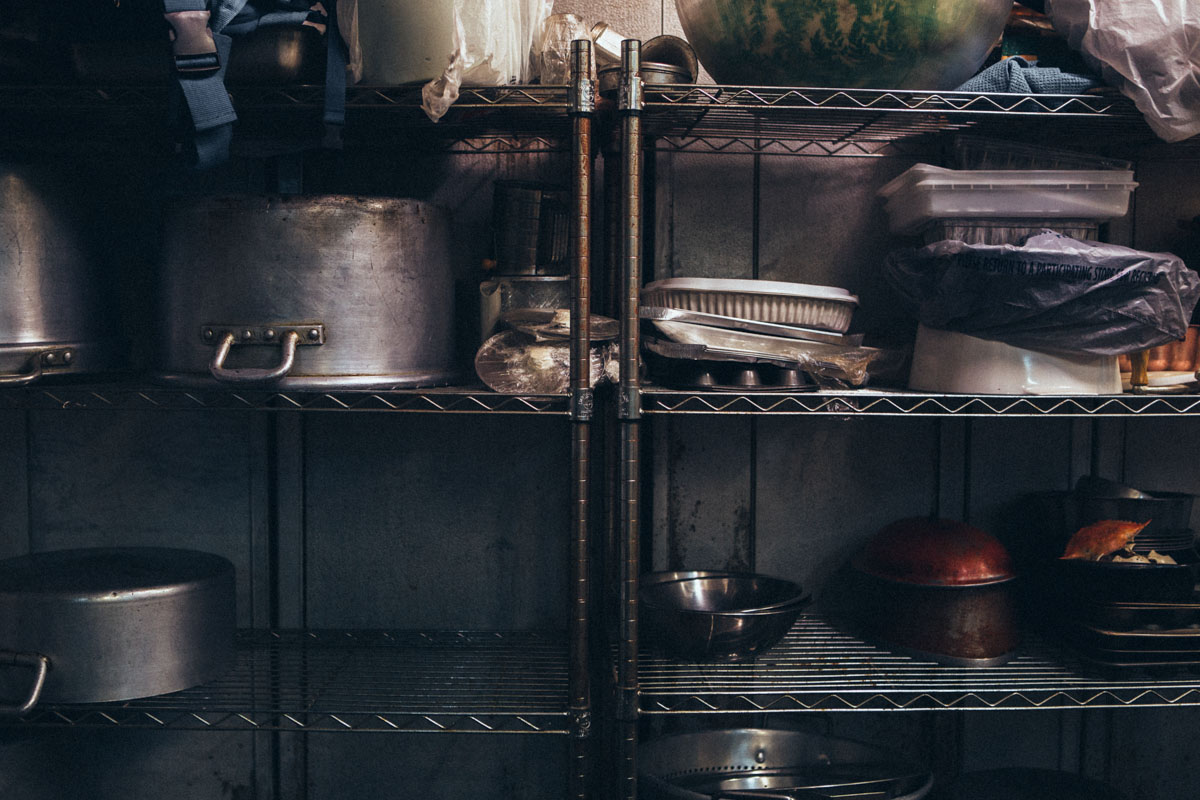
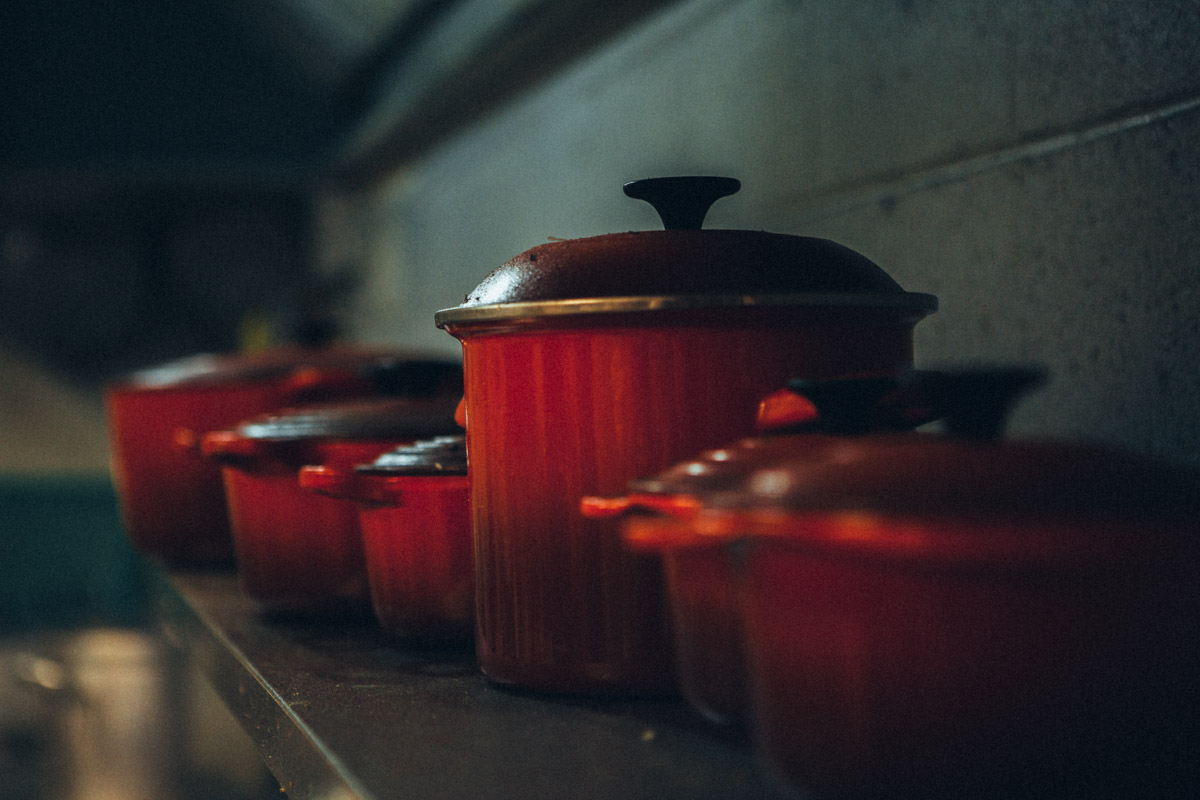
What is it that you love about cooking?
I love cooking, and I like to eat (laughs). And I want people to feel good. And feeding people and taking care of them makes them feel good.
Did you think when you were a little girl that you were going to be something great?
No, I never thought that. I don’t know if I wanted to be great but I always wanted to be what I called “somebody.” We were so poor. Back then you were treated like nothing when you were poor and even people who were only a little less poor than you would ignore you and I hated that. I wanted to be known, not in the famous sense. I just wanted the opportunity to be allowed through the door and to be given a chance. I wanted to be “seen.” Let me through the door, recognize me, see me, give me a chance. But if you were poor you were invisible, and I wanted to change that.
What jobs did you do before you started cooking?
Many things, I cleaned houses, I washed clothes. I used to pick strawberries when I was a little girl, and my mother would make jelly from the strawberries that we picked.
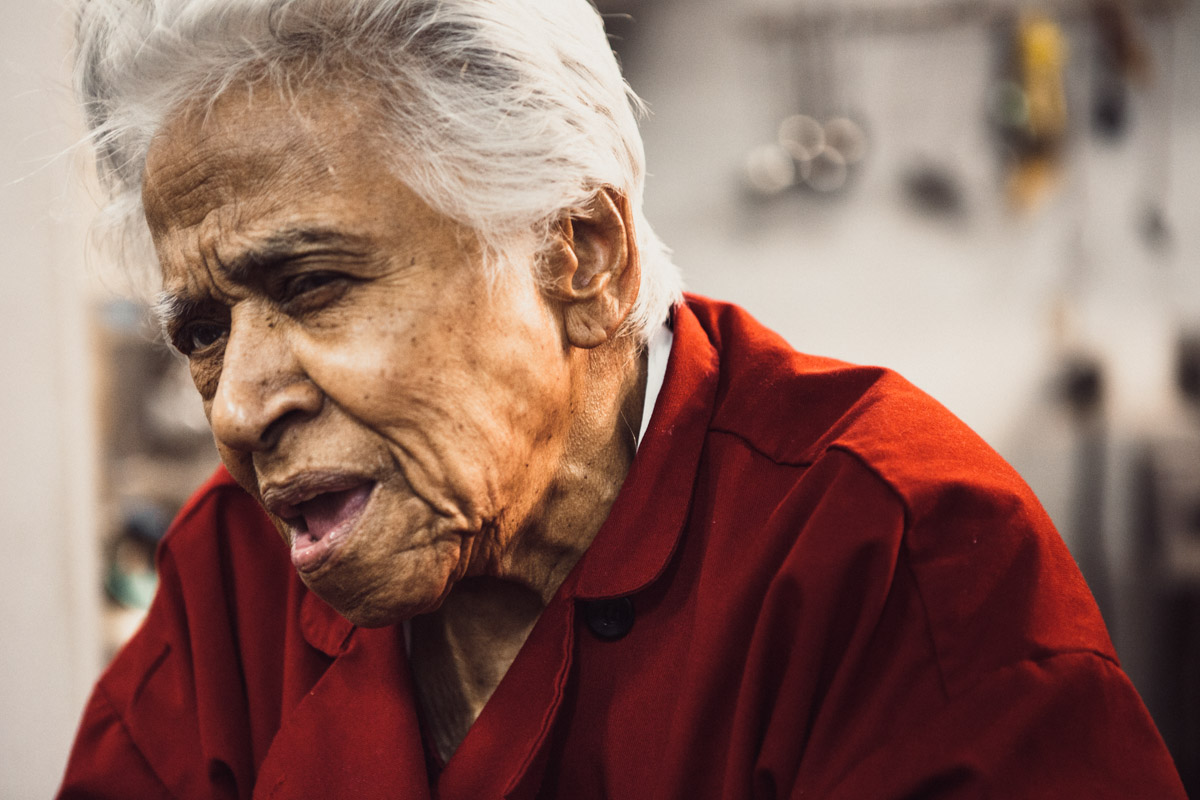
What do you think about your celebrity status?
Well I don’t think about being a celebrity, but I do sometimes wonder how did you do this? How did you get this far? How did you get here? I just went from day to day, you know. I never in my life thought about dollars.
When you look back is there anything that you would have done differently?
I did the best I could do. The best I could do.
People associate you with food, Creole food in particular, but how important was food for you growing up?
We didn’t have very much. We went to school with biscuit and jelly in our belly and you’d still better come home making that 90. No alibi. For lunch we walked home, I used to wish that I just had a sandwich like everyone else. But we’d walk home for lunch. My mother would cook greens or beans and rice. Or she would make soup. We had meat on Sundays or chicken. Sunday was the big meal.
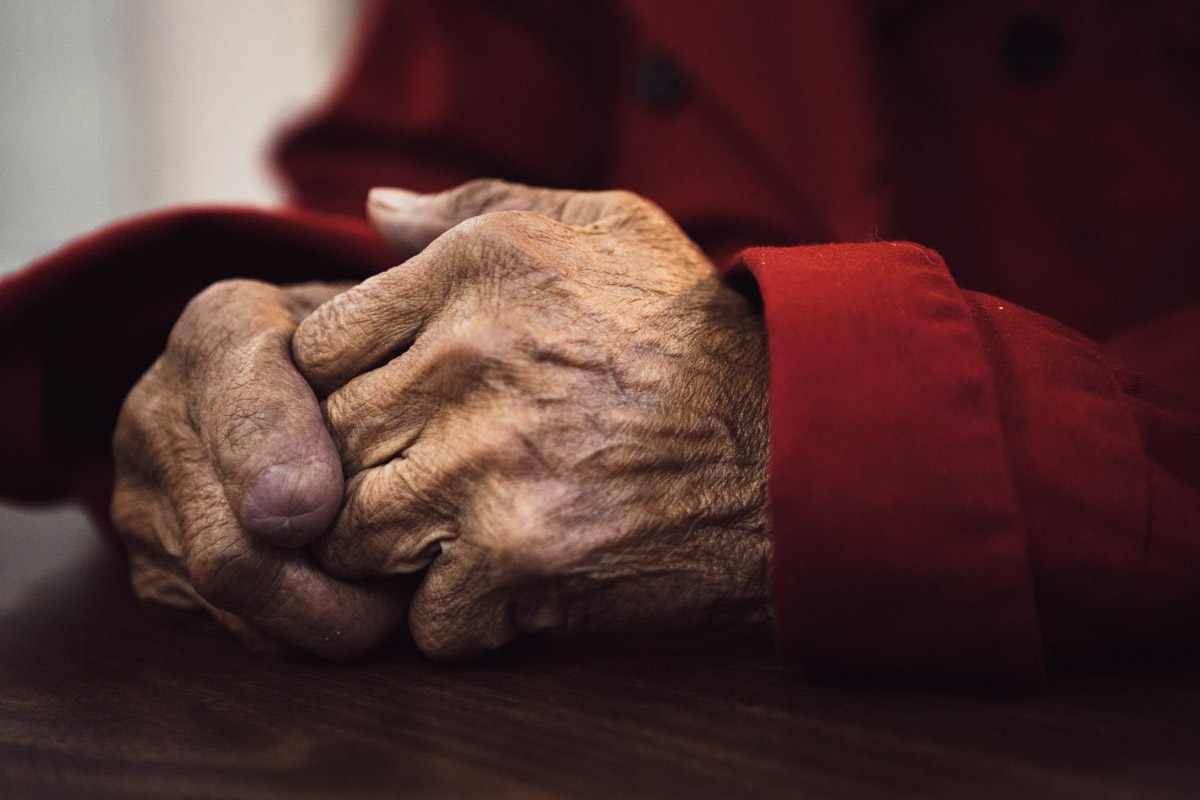
Can you share with me a memory that’s connected to food?
I remember that we sat down at the table to eat even the biscuit and jelly, and cocoa. I drank cocoa, everyone else drank coffee, but I liked cocoa. No milk. I’d make it with sugar and water. We didn’t have a cow so we didn’t have milk. I remember those Sundays when we did have chicken at dinner, and daddy would get the first piece. The chicken would go to him first, and then it would go down the line to the rest of us. There were 14 of us kids. Mother would always be the last one. She used to say that her favorite part of the chicken was the back. The back of the chicken. It wasn’t until years later that I realized that she probably said that because by the time the chicken got to her, the only thing left was the back! (laughs)
What did you learn from your father?
He told me to do three things every day: Pray, work, and do for others. Work hard and you can get anything you want. That’s what he used to say. Always do something for somebody else, and sometimes that’s just a kind word.
What did you learn from your mother?
Everything. Mother loved to read. We weren’t allowed to use slang. She was very strict. Very particular about language. She would say, “Don’t say I can’t.” There’s no such word as “can’t” in the dictionary. And we didn’t bother looking it up in the dictionary to check because if mother said it wasn’t there then it wasn’t there! (laughs)
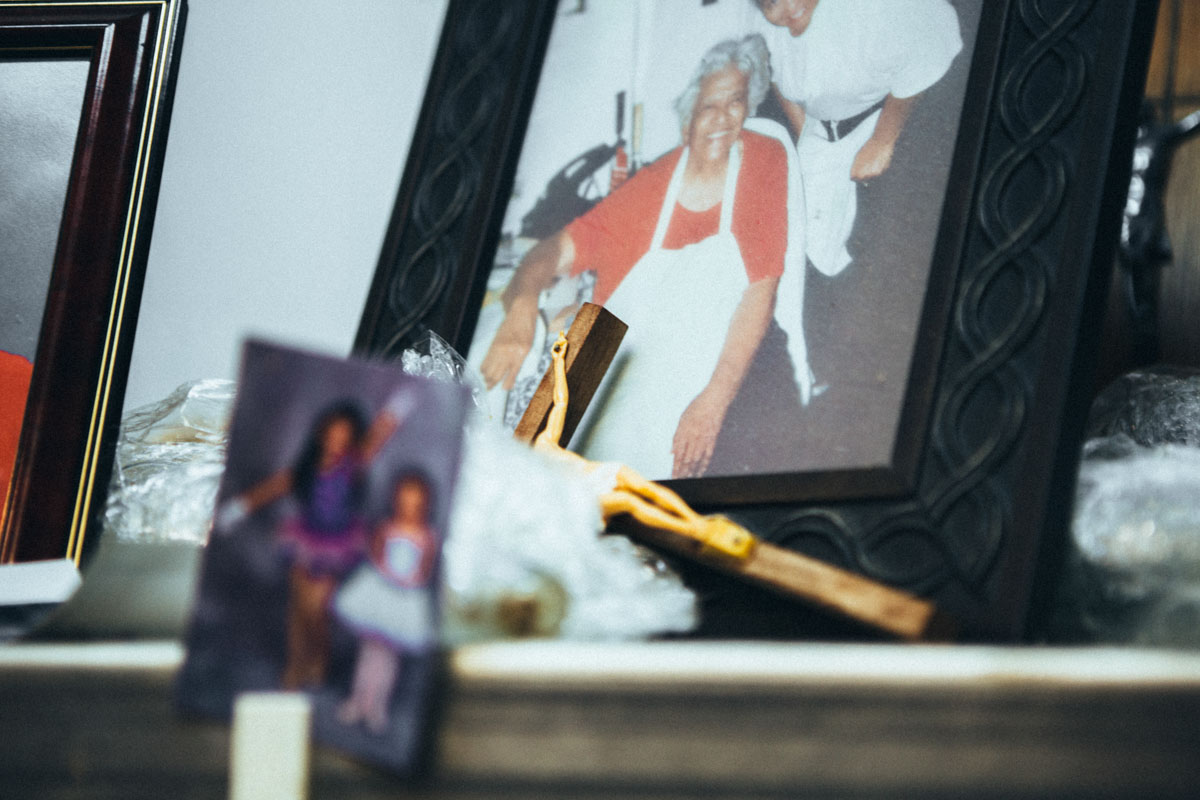
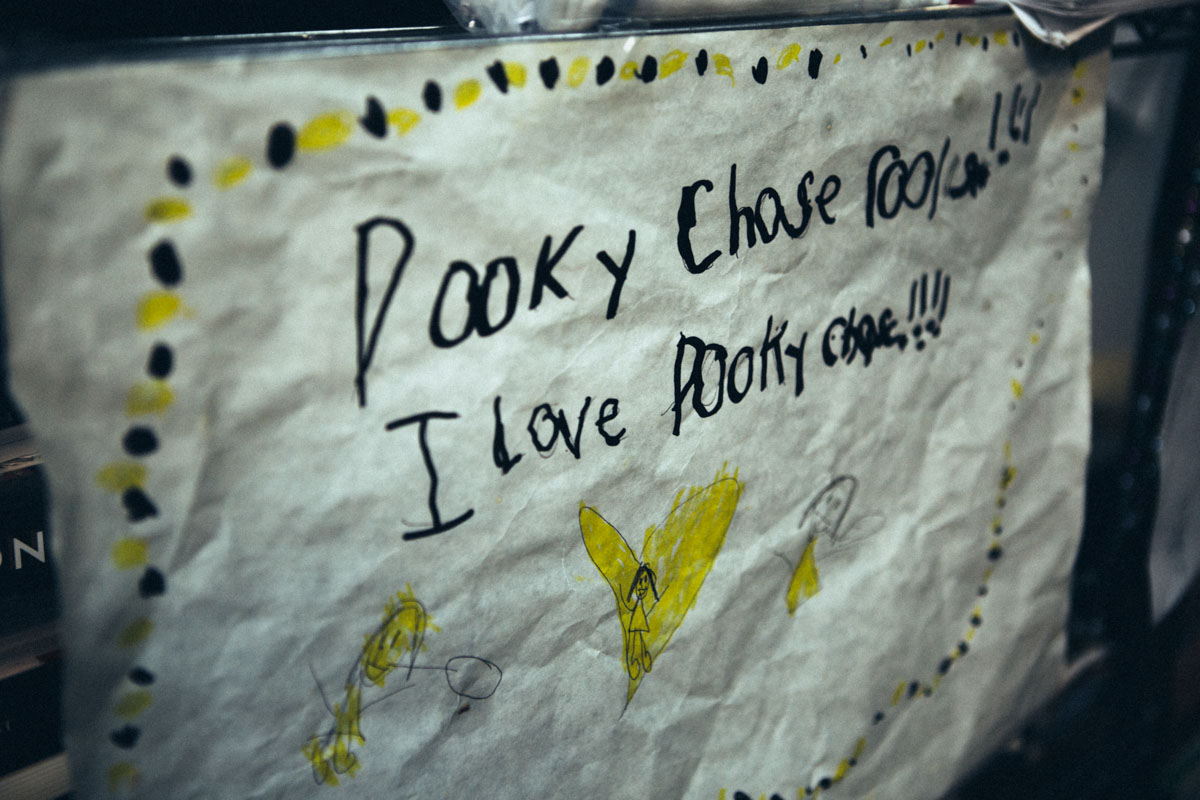
Do you feel like you’ve missed out on anything in your life?
I missed out on college. It would have been a good experience. It wouldn’t have made a difference because I did what I had to do. I read a lot and listened to other people. Life has been good to me and I’m grateful. But it would have been a good experience. I’ll be ninety-two next month and I feel like I still have a lot of work to do. We need to do more work with the kids. We need to teach them more.
What would you like your legacy to be?
That I helped somebody else up. That I saw somebody else.
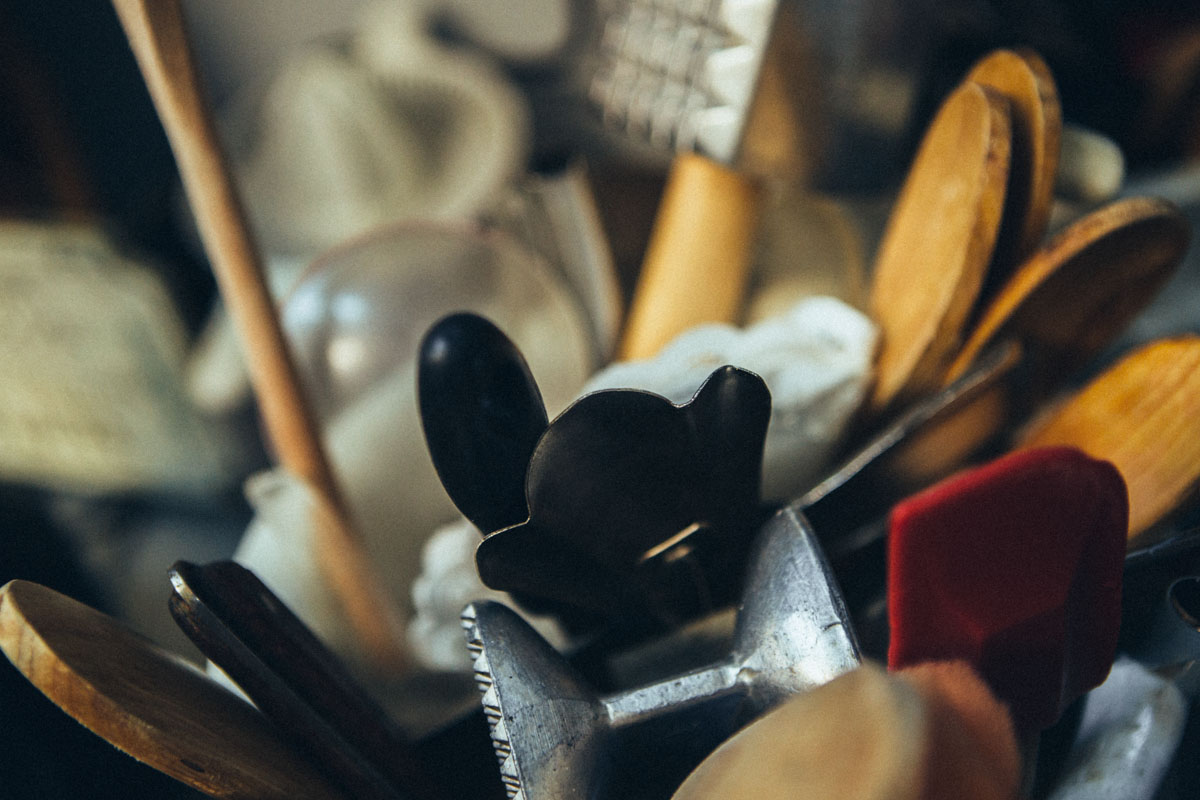
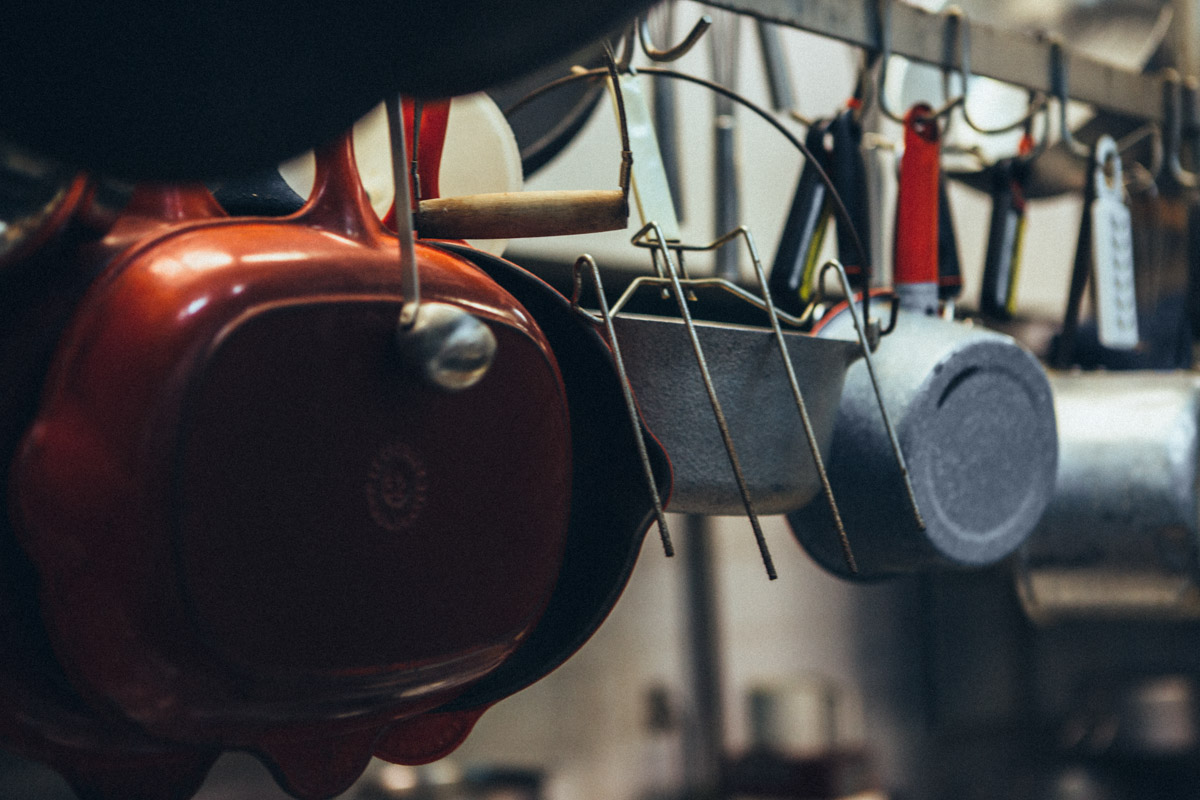
If you knew that the world was ending in two days, would you still choose to do what you’re doing now?
I don’t care if the world ends tomorrow, I’m still gonna cook ‘cause that’s what I do. That’s what I’m all about. That’s what I do.
You’re in a position where you get to have your words go out to the public, and if this was your last interview, what’s the last piece of advice you’d want to give:
Choose your cog on the wheel, work hard, stay true, and do some good in the world.
—
Dooky Chase’s Restaurant
2301 Orleans Avenue, New Orleans, LA 70119

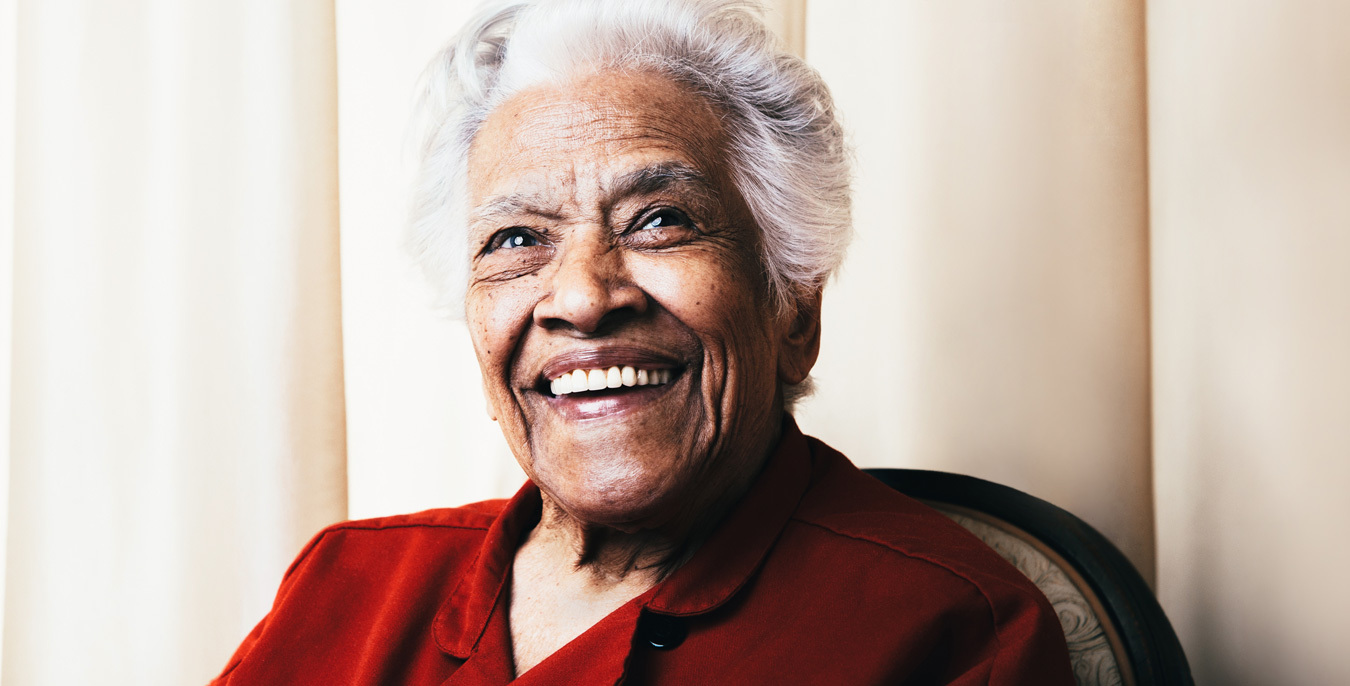

Our comments section is for members only.
Join today to gain exclusive access.